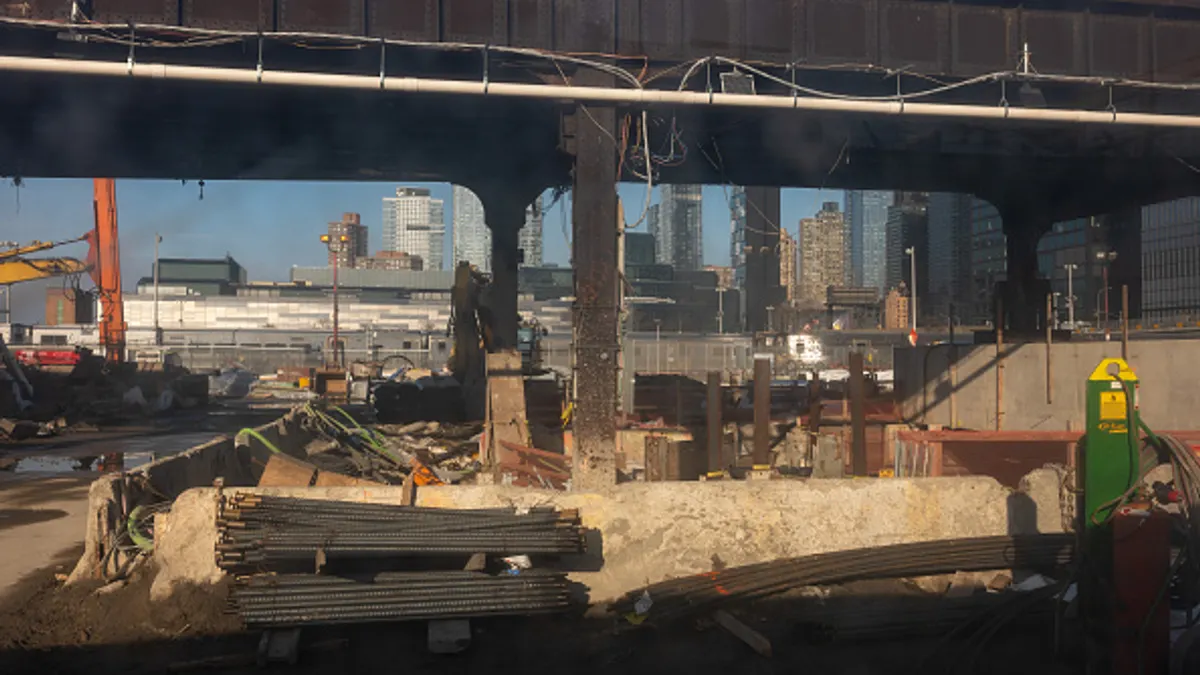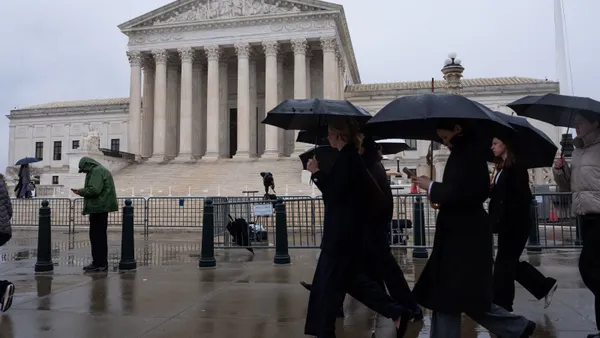Dive Brief:
-
Developers, builders, mortgage lenders and others could be guilty of housing bias for actions that have an unintentional discriminatory effect, the Supreme Court ruled Thursday.
-
The high court said lawsuits for alleged Fair Housing Act violations may be based on "disparate impact" — an interpretation of the law that says an organization’s intent is not a defense against racial discrimination in housing.
-
Still, the justices added a caveat, saying plaintiffs must prove that a defendant's actions or policy actually caused a racial disparity, not just that the disparity exists.
Dive Insight:
National Association of Homebuilders Chairman Tom Woods said the ruling "has far-reaching consequences for homebuilders and homebuyers alike."
He pointed to the high court’s contention that the Fair Housing Act cannot put "private developers in a double bind of liability, subject to suit whether they choose to rejuvenate a city core or to promote a new low-income housing in suburban communities," and called on Congress and the U.S. Department of Housing and Urban Development to "create clear rules that ensure builders can readily comply with the Fair Housing Act while assisting localities that need affordable housing."














